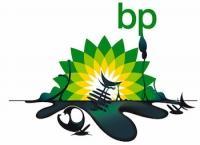by Farron Cousins / DeSmog Blog

It should come as no surprise then to find out that the big winner in the lease auction earlier this month was BP, the main culprit behind the 2010 Deepwater Horizon oil rig explosion and oil leak in the Gulf of Mexico.
The Bureau of Ocean Energy Management (BOEM) put 21.6 million acres up for auction, with area blocks ranging everywhere from 9 miles offshore, to 250 miles offshore. Overall, the auction brought in close to $110 million, with as much as 90 million acres still waiting to be auctioned off.
BP bid on a total of 31 lots, and was successful in winning 27 of those lots, more than any other energy company. The company had previously been barred from bidding on new oil and gas exploration leases following the 2010 Macondo well blowout, but that ban was lifted in March of this year.
Many of the areas that the company won are for deepwater exploration, an unpleasant scenario for areas of the Gulf Coast still reeling from the company’s 2010 disaster.
But the British oil giant BP has very little to fear with their new leases, even if another blowout were to occur, and that’s the part of the story that has been routinely missed by the media.
To begin with, the only stipulation the company had to agree to in order to get their bidding ban lifted was to hire an independent auditor to ensure that they are complying with existing safety standards.
The auditor must be approved by officials at the EPA, but that is essentially meaningless. After all, inspectors from the federal government were already in charge of safety inspections on the Deepwater Horizon, but the industry’s friendly ties to the regulators allowed them all sorts of special privileges, including filling out their own inspection reports and then having the federal inspectors simply sign their names to it.
So the “independent auditor” stipulation is worthless when it comes to safety.
Secondly, as mentioned above, the company only has to adhere to “existing” safety standards. One might think that the federal government’s oil spill commission report recommendations would make things a lot safer in terms of offshore drilling, and they absolutely would.
The only problem is that those recommendations were never implemented, and dirty energy companies in the Gulf of Mexico today are still operating under the same outdated and lackadaisical safety standards that led to the Deepwater Horizon disaster.
Sure, a few new “rules” have popped up here and there, but they are simply reiterations of previous rules that continue to allow very little oversight over industry activities offshore.
The third and most important fact that is often overlooked is that punishments for industry crimes do not reduce the likelihood of future disasters. Even though BP faced billions of dollars in lawsuits and federal fines, the company is back to pulling in record profits. On top of that, they are still using every trick in their playbook to avoid paying the victims of the Deepwater Horizon oil disaster.
For more than a year, the company has taken their case to the media, sending representatives on the air to say that they want to do the right thing, but there are so many people trying to take advantage of the settlement process.
In their minds, BP is the actual victim, and those greedy residents along the Gulf Coast are just cheap hustlers trying to make a quick buck.
When they aren’t trying their case in the media, the company is vigorously fighting legal battles in the court system.
They recently asked the U.S. Supreme Court to intervene and put the brakes on the entire process, which brings up the fourth part of the story that has been completely ignored: One of BP’s lawyers is Eugene Scalia, the son of Supreme Court Justice Antonin Scalia.
BP has hired the firm of Gibson Dunn to represent them in the process, and Scalia is one of their best attorneys. But Scalia isn’t the only Supreme Court justice with a Gibson Dunn relative; Samuel Alito’s son also works for the firm.
In essence, BP has two very strong connections to the U.S. Supreme Court, making their case a lock should the justices decide to take it.
All of this mess could have been prevented if President Obama hadn’t bowed to industry pressure. It is the lack of federal action that has allowed BP to continue to skirt liability and actually prosper after committing one of the worst environmental atrocities in American history.

